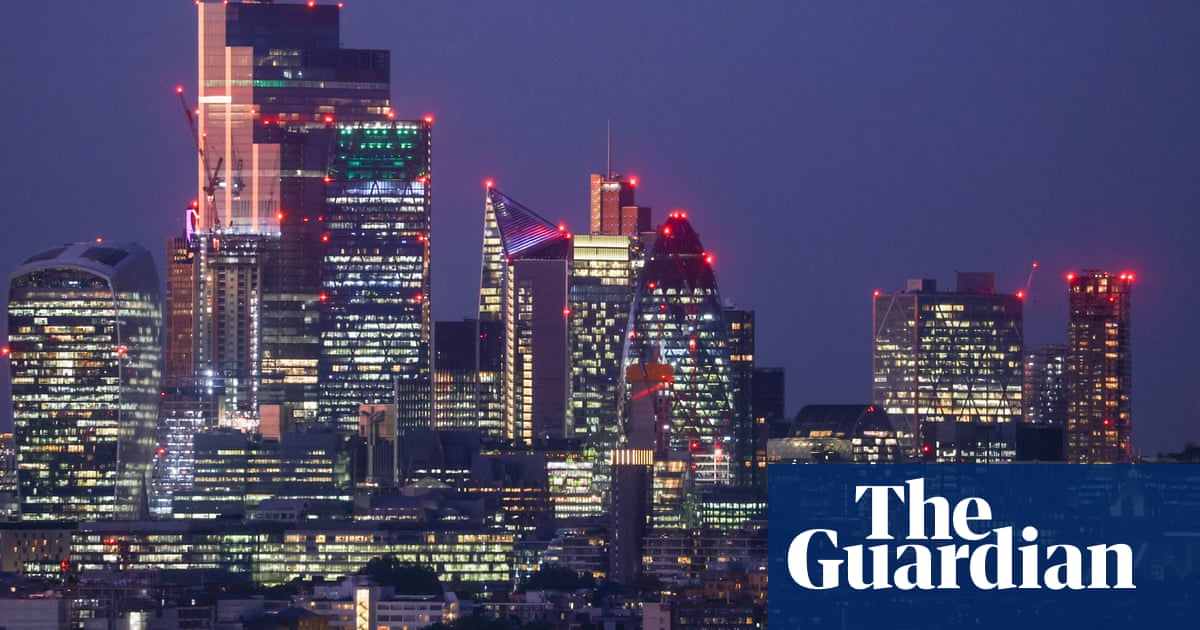Could the future of Canary Wharf lie in thumping beats and dancefloor raves? Could the City of London become a global hub of nocturnal revelry?
With financial districts struggling to bounce back to full capacity post-Covid, and the nightlife industry facing an existential crisis, there are suggestions clubs could move into deserted office blocks at evenings and weekends.
In its annual eccentric report on the future of leisure, the creative studio Bompas and Parr says it envisions “a future where financial districts in London and the world over are transformed into world-class late-night party zones”.
“By day, the city bustles with suits and stocks. By night, it’s reborn as a pulsating rave arena,” the report says. “With few residents to file noise complaints, organisers capitalise on the empty, echoing canyons of glass and steel.
“Empty office lobbies become sought-after DJ booths, rooftops host industry defining light shows, and any space that isn’t locked morphs into a dancefloor to create a sprawling web of passionate chaos as capitalism and counterculture merge.”
It may sound far-fetched, but it could become reality as the corporate and hospitality industries respond to changing behaviour in a post-Covid world.
Michael Kill, the chief executive of the Night Time Industries Association (NTIA), said the prospect of few noise complaints and the need to boost footfall in areas that workers have deserted in the shift to work from home made it an appealing prospect.
“There are conversations going on about things like the City of London, where the financial district is, as there is a very limited residential core so without a doubt, given some of the noise complaints and restrictions, that actually makes sense and works for nightlife,” Kill said.
About 500,000 people work in the City of London but only 8,500 people live there, reducing the likelihood of noise complaints from residential properties, something that has proven a hindrance for venues in recent years.
Kill said some financial districts were struggling with the impact of having only “three core days with full workforce”, as many people were choosing to work from home on Mondays and Fridays.
“What we’ve always had with the financial districts is, after a Friday night, they close down and everyone disappears,” he said. “But now we’re seeing people only work from the office for about three days a week. Friday has become an extension of the weekend. So landlords are obviously looking for new opportunities, and that is a very constructive conversation we’re having.”
He said there were conversations about how zoning rules could be adjusted to give “preferential planning and licensing opportunities” to nightlife and hospitality businesses in financial areas.
after newsletter promotion
The NTIA has warned the UK nightlife sector faces extinction by 2029 if venue closures persist. The number of nightclubs has more than halved between 2013 and 2024. The rate of decline was exacerbated by the pandemic, when clubs were shut for months on end and more than a third of the country’s venues closed for good.
The industry was continuously adapting to entice people back to the dancefloor and ensure the sector’s survival, Kill said, with everything from “light clubbing to full-fat clubbing to hybrid spaces and the evolution of venues with multifaceted options like conference spacing”.
Bompas and Parr predicted that capitalising on the over-50s market would be key, and that the “generation that pioneered sex, drugs, and rock’n’roll” would be seeking new ways to spend their spare time.
Kill said: “What we’ve seen is the industry, in many respects, has been propped up by an older generation that are plugged into revisiting those club culture memories, rave memories, events memories. The reality is, all they want to do is go out and revisit their youth.
“So it’s absolutely something that is happening and is a growing market that is without a doubt now being noticed by the sector as a whole as a big opportunity.”
